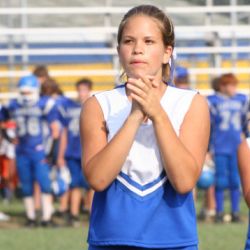Sports teams thrive on the enthusiasm of their fans in the stands. You know just how powerful home field advantage can be in sports. This refers to the phenomenon of how teams generally do better when they're in their own field, surrounded by their own fans. (However, some evidence suggests that this has more to do with discouraging the visiting team than encouraging the home team -- but whatever works, right?) Cheerleaders play a pivotal part in keeping the fans excited and supportive, and it's developed into a competitive sport in its own right.
Youth cheerleading is a great way to get kids involved in a physical group activity. Whether or not kids stay involved with the sport through high school or college, they still benefit from the exercise, discipline and social activities. And just as cheerleaders lead crowds, the coach has responsibility for leading the cheer squad, ensuring activities are safe, productive and fun.
Advertisement
Coaching a Pop Warner cheer team is one way to help these kids benefit from the activities. Pop Warner Little Scholars, Inc., is the nation's largest and oldest youth football and cheerleading organization. It allows kids age 5 to 16 the opportunity to take part in cheering on the sidelines and competing in national championships.
However, coaching can be harder than it looks. If you're charged with the task of coaching a Pop Warner cheer team, you'll want to take heed of some tips first.


